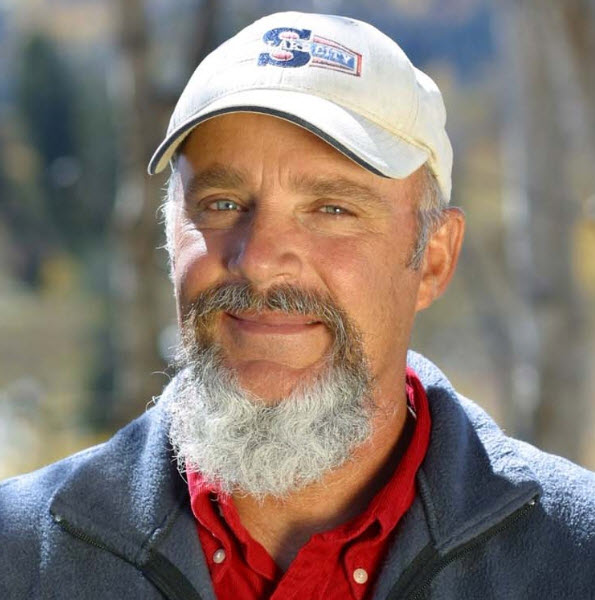The origins of food and habitat preference in herbivores, like beef cattle, involve interactions between the culture and the individual, as well as responses of the body to nutrients and toxins. And humans have gone from a biodiverse diet relying on chemical pesticides and fertilizers, supplemented with antibiotics.
Biodiversity in plant communities can enhance the well-being of soil, plants, and animals, and ultimately, human beings.
That’s good health in the broadest sense.
About Dr. Fred Provenza
Fred Provenza is from Colorado where he worked on the DeLuca ranch near Salida while earning a B.S. Degree in Wildlife Biology from Colorado State University. Upon receiving a B.S. degree in 1973 he became ranch manager. He and his wife Sue left the ranch in 1975 so he could work as a research assistant and technician at Utah State University, where he earned M.S. and Ph.D. degrees. He was a professor in the Department of Wildland Resources at Utah State University from 1982 to 2009. He is now Professor Emeritus and he and his wife Sue are living once again in the mountains of Colorado.
For the past 38 years, his group produced ground-breaking research that laid the foundations for what is now known as behavior-based management. That work inspired researchers and managers in disciplines including nutrition and foraging behavior of wild and domestic animals and humans, phytochemical ecology, pasture and rangeland science and management, restoration ecology and targeted grazing, wildlife-damage management, animal welfare, and rural sociology and development. Along with colleagues and students, he has authored or co-authored over 250 publications in scientific journals and books. He has been an invited speaker at over 350 conferences.
These efforts led to the formation in 2001 of an international network of scientists and land managers from five continents. That consortium, known as BEHAVE, integrates behavioral principles and processes with local knowledge to foster healthy relationships among soil, plants, herbivores, and people as social, economic, and ecological environments ever transform. Integrating understanding of behavior with local knowledge eases transitions as systems change and alters peoples’ philosophies and practices from rigid and unyielding to fluid and malleable. We no longer view organisms, including ourselves, as machines and genes as destiny. Rather, we learn to work with behavioral relationships to create opportunities as environments ever transform.


John,
I’m afraid I have no direct contact with Dr. Provenza, but you might try this address:
fred.provenza@usu.edu
Dr. Miguel Altieri, agro-ecologist, might also be of some help as you look at blending animal husbandry and cropping: https://ourenvironment.berkeley.edu/people/miguel-altieri
Good luck!
Gail N-K
Co-Publisher, GoodFood World
I am working with sheep in my vineyard and would very much like to contact Dr. Provenza. Do you have a current email for him? Thanking you in advance, John Alban